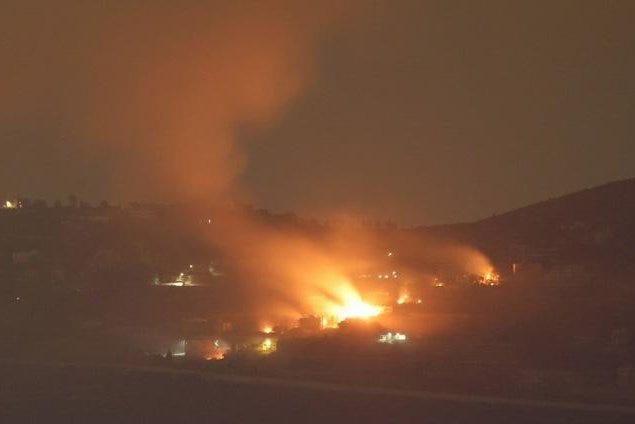
In a major development that has raised alarms across the international community, Israel has launched a ground incursion into Lebanon, significantly escalating tensions in the region. This move marks a turning point in the already delicate and hostile situation between Israel and Hezbollah, the powerful militant group based in southern Lebanon. The ground incursion is not only a military escalation but also a signal that the conflict may intensify and broaden, potentially dragging in other regional powers and militant groups.
The Context Behind the Invasion
Israel and Hezbollah have a long and turbulent history, with conflicts dating back to the 1980s. Over the years, the two sides have engaged in numerous skirmishes, with the 2006 war being one of the most notable. Since then, the Israel-Lebanon border has remained one of the most sensitive areas in the Middle East. Recent flare-ups of violence, including rocket attacks from southern Lebanon and retaliatory strikes by Israel, have brought tensions to a boiling point. Israel’s decision to send ground forces into Lebanon is a significant escalation, signaling that diplomatic efforts to de-escalate have faltered.
Regional Implications
The incursion could have wide-reaching effects on the region’s already fragile stability. Hezbollah, backed by Iran, has long posed a strategic threat to Israel, and this conflict may embolden Tehran to provide further military or logistical support to the group. Iran’s involvement could trigger a broader proxy conflict, drawing in other Middle Eastern countries and exacerbating existing tensions between Iran and Israel. Neighboring Syria, still recovering from its civil war, may also be affected, as militias operating in the region could get involved.
Moreover, international actors such as the United States, Russia, and the European Union may be forced to reconsider their positions, with diplomatic efforts potentially stalling or fracturing under the pressure of military action. Any escalation in the Israeli-Lebanese conflict risks affecting the wider Middle East, with the possibility of disrupting global energy markets, international trade, and regional alliances.
Humanitarian Concerns
As with any armed conflict, the civilians are often the hardest hit. Lebanon, which is already in the midst of an economic and political crisis, could face severe humanitarian consequences due to this ground incursion. Civilian casualties, displacement, and infrastructure damage are likely to worsen the situation for the Lebanese people, many of whom are already struggling with poverty and instability. International aid organizations are likely to be stretched thin, trying to provide relief amidst the chaos of war.
The possibility of a refugee crisis looms large, as thousands of people could be forced to flee their homes to avoid the violence. Lebanon, with its already strained resources, may find it difficult to cope with an influx of displaced people, further exacerbating the crisis.
The Path Forward
The future of this conflict remains uncertain, with both military and diplomatic options still on the table. Israel has justified its incursion as a necessary move to eliminate security threats posed by Hezbollah, while Hezbollah has vowed to resist with force. However, a prolonged conflict would serve neither side’s long-term interests. Both the international community and regional powers must act swiftly to mediate, de-escalate, and bring the warring sides to the negotiating table before the situation spirals into a full-scale war.
In the meantime, the world watches closely, as the Israeli ground incursion into Lebanon may set off a chain reaction of events that could alter the political and security landscape of the Middle East for years to come.
Israel’s ground incursion into Lebanon marks a significant escalation in a region already fraught with conflict. The implications of this invasion extend far beyond the immediate battlefield, potentially triggering a wider regional war, creating humanitarian crises, and disrupting international diplomacy. As events unfold, the international community’s response will play a crucial role in determining whether this conflict can be contained or if it will spiral into an even more dangerous confrontation.
